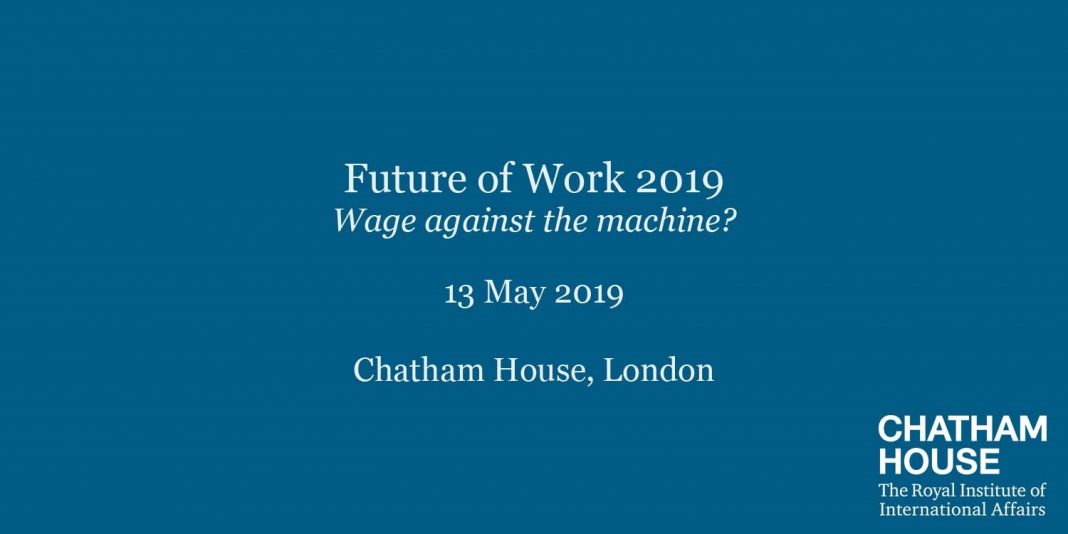Date: 13 May 2019
Time: 9:30am to 5:00pm
Venue: Chatham House, London
Contact: [email protected] or call Boudicca Georgii Hellberg on +44 (0)20 7314 2785
Read the agenda, see speakers and book your place: https://cht.hm/2G6ZtbM
The technological revolution is redefining the fundamental nature of employment for workers, companies and countries globally. Automation, artificial intelligence (AI) and machine learning are increasingly being integrated into industrial and commercial processes, as businesses seek to harness new and emerging technologies to reach higher levels of efficiency. The future of work is here. Machines today can outperform humans in a range of work activities, and the deployment of disruptive technologies promises considerable opportunities for global economic growth. In a climate of stagnant productivity in the developed world and an ageing global population, these mega-trends offer unparalleled opportunities to tackle some of the world’s most challenging problems.
At the same time, the transition towards a new employment epoch is also giving rise to new anxieties and uncertainty about the quantity and quality of jobs, as well as skills and wages. At a global level, this also raises questions about the impact on technologically advanced countries versus developing economies. Will growth and power concentrate in digital powerhouses, further widening the gap? Or will it allow emerging markets to catch up faster? Will this exacerbate socio-economic divisions, or will it make more people overall better off? It is clear the world of work is undergoing a period of significant change, but less clear what change will look like.
To harness the transformative potential of the Fourth Industrial Revolution, policy-makers and business leaders will need to prepare for and respond to the challenges of this new era of accelerating change and innovation. The annual Chatham House Future of Work conference will examine the main drivers transforming the world of work, assessing the impact on employment across different sectors and evaluating potential regulatory and industry strategies to move forward in a period of disruption and opportunity. Discussions will explore key questions including:
- How can policies be ‘future-proofed’ to ensure opportunities from emerging technologies outweigh their risks to employment and equality?
- Is technology going to be the great divider or equalizer? What are the implications for global economic power and how do productivity challenges differ across developed and emerging markets?
- Which professions have the highest likelihood of automation, and how are roles likely to evolve?
- How can governments, businesses and academic institutions design a system that adequately provides skills at a time of constantly accelerating change and disruption?
Speakers at this year’s event include:
- Margot James MP, Minister of State, Department for Digital, Culture, Media and Sport,
- Troels Lund Poulsen, Minister for Employment, Denmark,
- Janine Berg, Senior Economist, International Labour Organization,
- Ronan Harris, Managing Director for UK & Ireland, Google,
- James Manyika, Chairman and Director, McKinsey Global Institute.
The Chatham House Rule
To enable as open a debate as possible, this conference will be held under the Chatham House Rule.
For more information about the event, please visit the Chatham House website or e-mail [email protected].


















